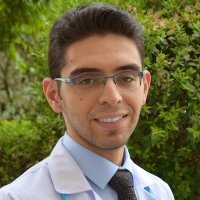Physiology Fundamentals
- HMX
Build a body of knowledge on the systems that keep bodies functioning.
- Online; Instructor-Paced
$1,025
Multi-course bundle pricing is also available across enrollment periods. The student price for an individual course is $800 and cannot be combined with course discounts.
Certificate
Earn a Certificate of Completion upon successfully completing all coursework.
10 Weeks, 4-6 Hours/Week
Most people can expect to spend around 40 hours total, but this depends on your baseline knowledge and how carefully you take notes.
- Online; Instructor-Paced
$1,025
Multi-course bundle pricing is also available across enrollment periods. The student price for an individual course is $800 and cannot be combined with course discounts.
Certificate
Earn a Certificate of Completion upon successfully completing all coursework.
10 Weeks, 4-6 Hours/Week
Most people can expect to spend around 40 hours total, but this depends on your baseline knowledge and how carefully you take notes.
On This Page
Overview
Understanding how the body works is vital for effectively treating patients. This knowledge is essential for advancing medical science, developing new treatments, and improving health outcomes.
In this foundational HMX course, you will learn essential principles underlying how the human body functions. Through engaging, online lessons, you will gain an understanding of how this knowledge comes into play in real-world scenarios and in clinical settings from the intensive care unit to the cardiac catheterization lab.
Learning Objectives
- Understand how the body reacts to stimuli to maintain steady-state conditions
- Learn fundamental concepts like partial pressure, flow through tubes, compliance, supply and demand, and acid-base balance and how they relate to the working of biological systems
- See how basic principles apply in real world and clinical settings
Overview
Understanding how the body works is vital for effectively treating patients. This knowledge is essential for advancing medical science, developing new treatments, and improving health outcomes.
In this foundational HMX course, you will learn essential principles underlying how the human body functions. Through engaging, online lessons, you will gain an understanding of how this knowledge comes into play in real-world scenarios and in clinical settings from the intensive care unit to the cardiac catheterization lab.
Learning Objectives
- Understand how the body reacts to stimuli to maintain steady-state conditions
- Learn fundamental concepts like partial pressure, flow through tubes, compliance, supply and demand, and acid-base balance and how they relate to the working of biological systems
- See how basic principles apply in real world and clinical settings
Questions?
Have questions about HMX courses, enrollment, or learning options? Contact our team by email—we’re happy to assist.
About the Course
HMX online courses bring complex material to life through engaging biomedical visualizations, clinical applications, and true-to-life scenarios paired with lectures from Harvard Medical School faculty and leading experts.
Who Should Enroll
This fundamentals course is appropriate for pre-med and current medical students interested in building their foundational knowledge of medical science, as well as professionals in health care and related fields who need a fundamental understanding of physiology – including those working in R&D, product management, strategy, sales, marketing, and other roles.
Course Format
Most people can expect to spend around 40-60 hours total, but this depends on your baseline knowledge, how carefully you take notes, and how seriously you take the assessments. Lessons from the courses are released weekly and remain available until the courses end. The course wraps up with a final exam administered the final two days of the session.
Group Enrollments
HMX courses are ideal for organizations looking to train teams or larger groups. Group pricing is available, making it a cost-effective investment in team development.
Faculty
- Ellen and Melvin Gordon Distinguished Professor of Medicine and Medical Education, Harvard Medical School
- Vice President for Education
- Director, Carl J. Shapiro Institute for Education and Research, Beth Israel Deaconess Medical Center
Michael J. Parker, MD, Associate Dean for Online Learning / Faculty Director of HMX / Assistant Professor of Medicine, Harvard Medical School
Melanie Hoenig, MD, Associate Professor of Medicine, Harvard Medical School / Nephrologist, Beth Israel Deaconess Medical Center
Barbara LeVarge, MD, Instructor of Medicine, Harvard Medical School / Pulmonologist, Beth Israel Deaconess Medical Center (former)
Duane Pinto, MD, MPH, Associate Professor of Medicine, Harvard Medical School / Interventional Cardiologist, Beth Israel Deaconess Medical Center
HMX Faculty Perspectives
Why do you think it’s important for health care professionals to learn physiology?
"Physiology is truly the science of how the body works at a macro level. It helps us understand how all the organ systems are integrated and, when we are healthy, are seamlessly monitoring and responding to multiple unconscious inputs every moment of the day and night to keep us functioning well. It is also the foundation for studying and making sense of the impact of disease states, which invariably alter the normal physiology and lead to symptoms." -Richard M. Schwartzstein, MD
From Our Learners
Hear from HMX students as they share their experiences learning online with Harvard Medical School.
"The HMX course linked the basic knowledge with the clinical application. I have learned how these concepts are applied in real clinical scenarios."
Request Information
Interested in learning more about this program? Sign up for details.



